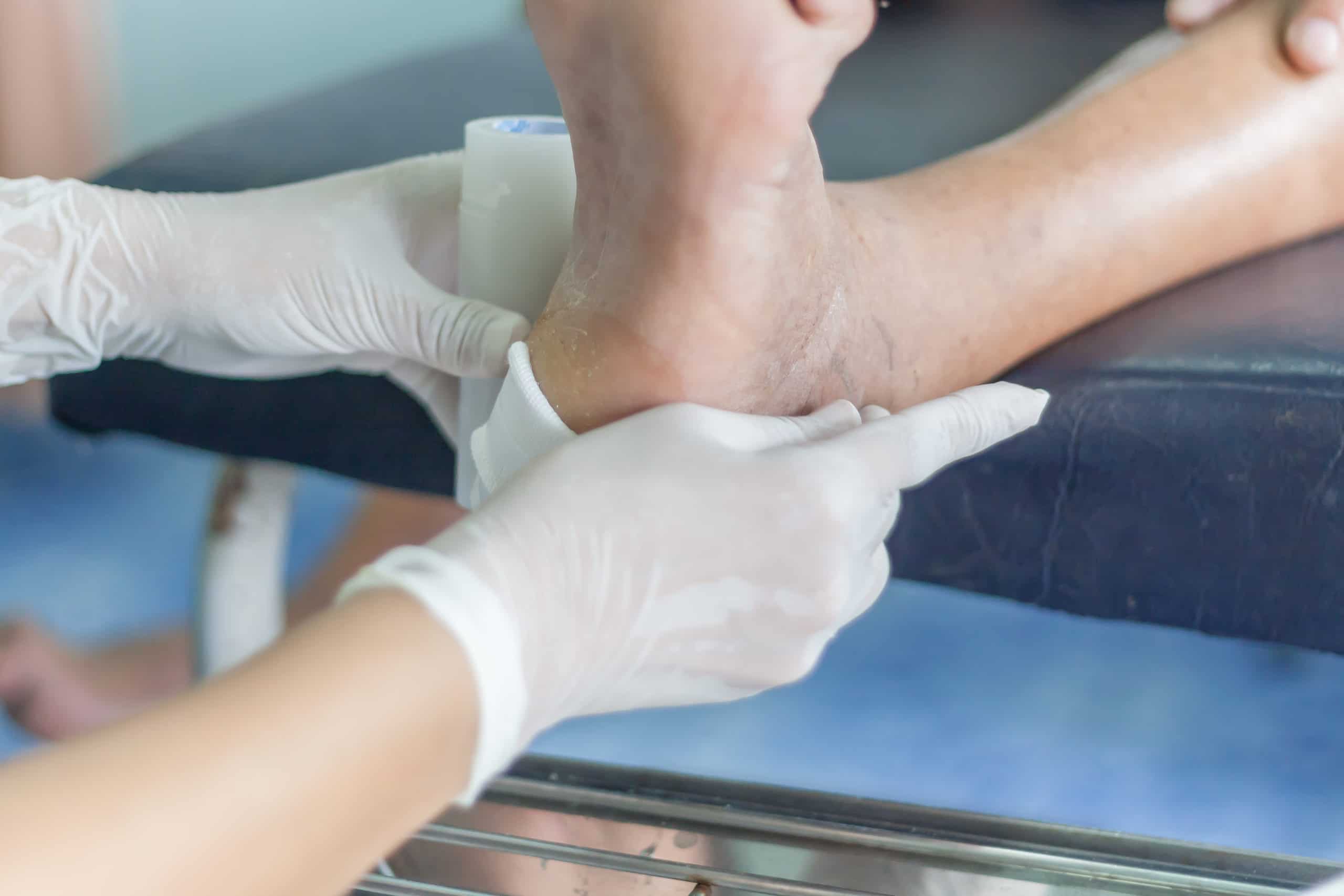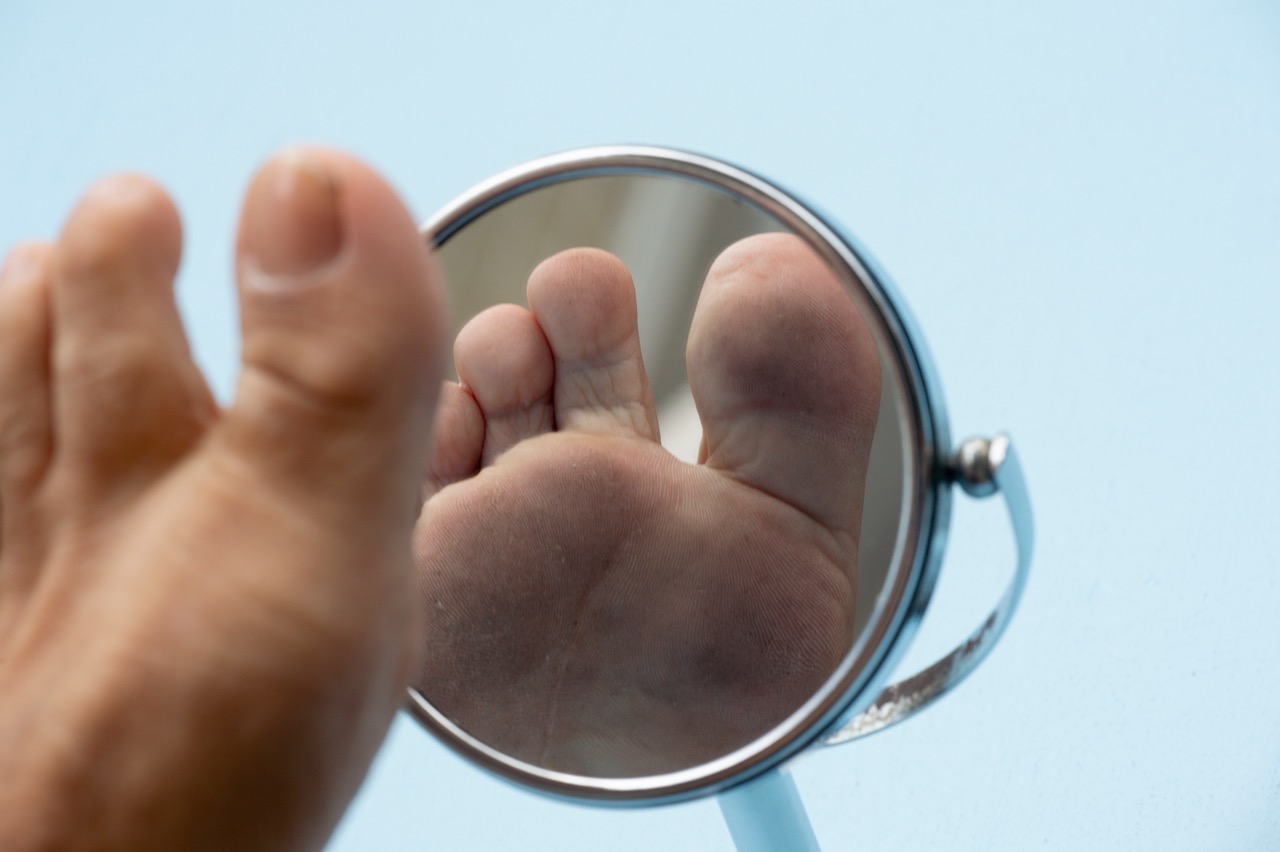Wound Care
A wound can be a source of great discomfort and, if not properly cared for, can lead to more serious health problems. This is especially the case with diabetic wounds, where lack of proper wound care can lead to severe complications such as infection or amputation.
Even a small problem, when left unattended, has the potential to turn into something dire. Even a small nick to the foot can turn into a serious ulcer, thanks to several factors that can work against a diabetic patient. Quickly discovering wounds of any size and giving them the prompt and thorough care they need is essential to preventing major complications.
It is important to understand how diabetic wounds form and what to look for to care for them properly. With proper diabetic wound care, most injuries can heal successfully.
How Diabetic Wounds Form
Diabetic wounds are typically the result of long-term damage to the blood vessels and nerves. This damage is caused by high blood sugar levels over a long period. The damage to the blood vessels and nerves can cause problems with circulation.
The feet are particularly vulnerable to the consequences of diabetes on circulation. This is mainly because the feet are already so far from the heart that it’s naturally a challenge to pump blood to them without additional trouble.
Among the first parts of the feet to suffer from these effects are the nerves. As they become damaged (peripheral neuropathy), the ability to sense things like temperature and pain in the feet gradually diminishes. This can eventually mean that injuries to the feet will go entirely unfelt.
Add to this the fact that poor circulation to the feet can also inhibit the ability to heal and it’s a very dangerous combination. If an injury goes unnoticed and untreated, it may not heal quickly enough against the constant irritation of continuing to walk on it. Instead, that small cut grows larger and deeper, and can even grow infected.
According to the American Podiatric Medical Association, about 14-24 percent of diabetic patients who develop a foot ulcer each year will require an amputation due to infection or other complications.
It’s a terrible result, but it’s also one that can be preventable.
You Should Know
What To Be On The Look Out For
The first step of a good diabetic wound care program is identifying potential problems before they ever have a chance to become serious! If you have diabetes, it is important to check your feet regularly for any signs of wounds. Some common signs of wounds include:
- Redness or swelling
- Pain or tenderness
- Blisters or ulcers
- Cracks in the skin
- Small cuts
- Sores
- Ingrown toenails
- Discolorations
- Places that feel extra warm to the touch
If something is found, the best practice is to give us a call and let us know about it. We can then decide whether it’s best to keep an eye on the spot for the next few days or come in for a closer examination.
Treatment Options for
Diabetic Wounds
There are many different treatment options available for diabetic ulcers. The type of treatment that is right for you will depend on the severity of your wound. Some common treatment options for diabetic wounds include:
- Debridement (properly cleaning debris and dead tissue from the area)
- Preventing and controlling infection
- Skin grafts
Our doctor will be able to determine which treatment approach is best for you. This might involve taking pressure off the injured area through the use of a cast, brace, or custom orthotics. It might also involve laser therapy to encourage blood flow and cell repair.
When
Should I Go to the Podiatrist?
If you have diabetes, it is important to come in to see our podiatrist for regular checkups. Dr. Gilmore will be able to check for any signs of problems with your feet.
Some common signs that it is time to see our podiatrist include:
- Foot wounds that are not healing.
- Foot pain that is getting worse.
- Numbness or tingling in the feet.
- Changes in color or texture of the skin on the feet.
If you notice any of these signs, it is important to make an appointment with Dr. Gilmore. He will be able to provide proper treatment and care for your feet.
For Help With Wound Care
Contact Us Today
Don’t let a wound get in the way of living your life. At Capital Podiatry Associates, we have a team of experts who can help you to manage your wound and promote healing. Contact us today to learn more about our wound care services.

